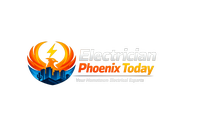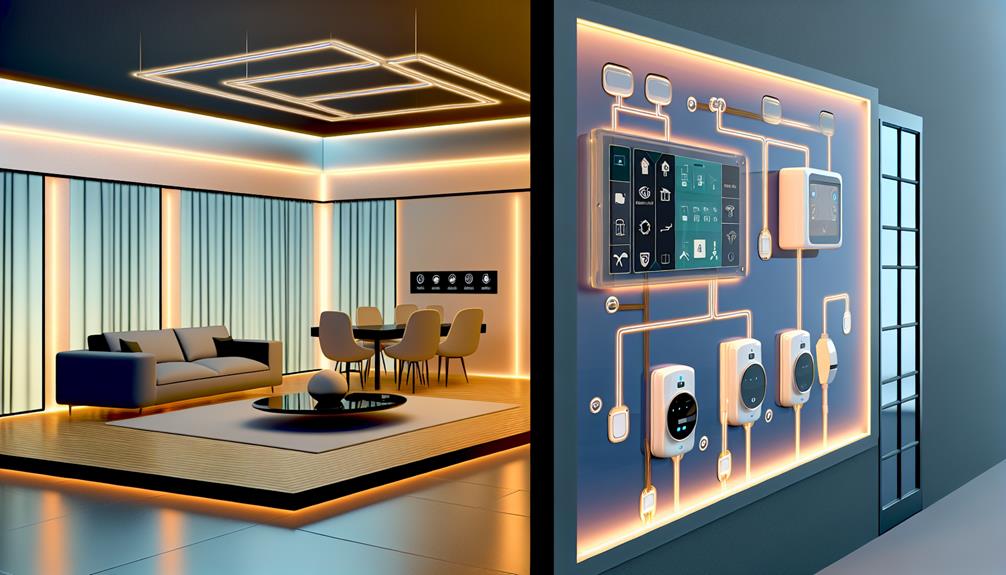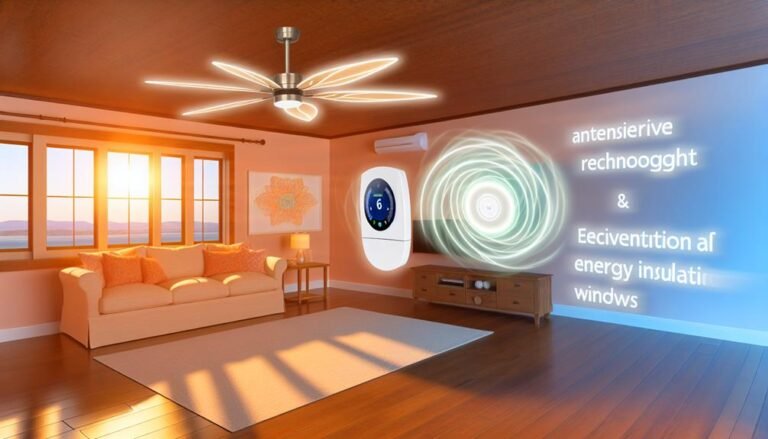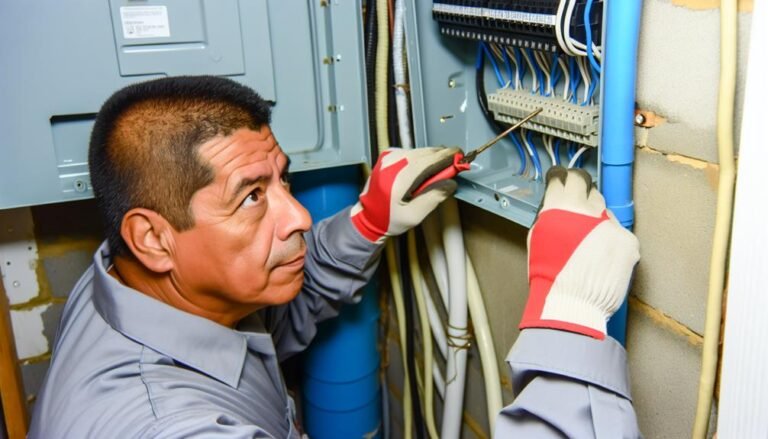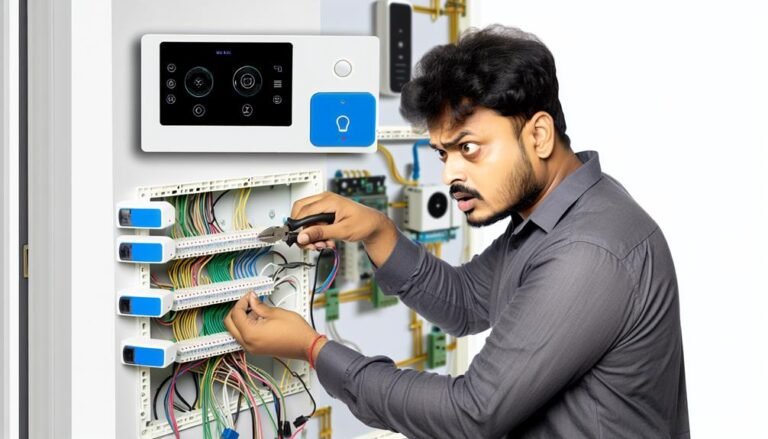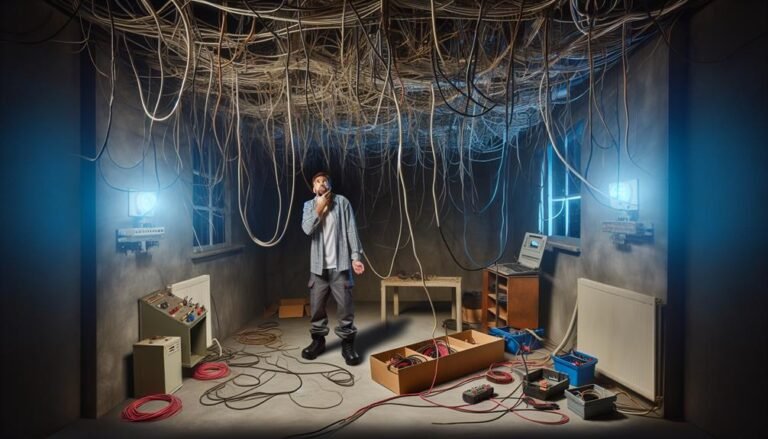Trends in Residential Electrical Installations
As you step into the world of residential electrical installations, you will find that it is a realm of constant evolution and innovation. Like the currents flowing through the wires, trends in this field surge forward, shaping the way we live and interact with our homes.
From the subtle hum of a smart home automation system to the glowing embrace of energy-efficient lighting solutions, these advancements not only enhance our daily lives but also pave the way for a more sustainable future.
But that’s just the tip of the iceberg. There are even more electrifying trends waiting to be discovered, offering a glimpse into the possibilities that lie ahead.
Key Takeaways
- Smart home automation systems have revolutionized residential electrical installations, providing homeowners with control, monitoring capabilities, convenience, and energy efficiency benefits.
- Solar power integration is a key component of modern residential electrical installations, reducing reliance on traditional energy sources, lowering electricity bills, and offering environmental sustainability.
- Energy-efficient lighting solutions, such as LED lighting and CFLs, are crucial for reducing electricity consumption and environmental impact, with the help of lighting controls like dimmers and motion sensors.
- Electric vehicle charging stations are vital for facilitating the growing demand for electric vehicles, requiring compatibility, efficient charging capabilities, and convenient locations for a seamless charging experience.
Smart Home Automation Systems
Smart home automation systems have revolutionized residential electrical installations, providing homeowners with the ability to control and monitor various aspects of their homes with ease and convenience. These systems utilize advanced technology to integrate and automate various electrical devices and appliances in your home, allowing you to have complete control at your fingertips.
With a smart home automation system, you can remotely control your lighting, thermostat, security cameras, and even your kitchen appliances. Imagine being able to turn on your lights before you arrive home, adjust the temperature without getting out of bed, or even check your security cameras while on vacation. These systems offer a new level of freedom and convenience for homeowners.
The key to these smart home automation systems lies in their connectivity. By connecting your devices to a centralized hub or using a smartphone app, you can easily control and monitor all aspects of your home. This connectivity also allows for seamless integration with voice assistants like Amazon Alexa or Google Assistant, giving you hands-free control over your smart home.
In addition to convenience, smart home automation systems also offer energy efficiency benefits. By being able to control and monitor your devices, you can optimize their usage and reduce unnecessary energy consumption. For example, you can set schedules for your lights or adjust your thermostat based on occupancy, saving you money on your energy bills.
Solar Power Integration
Solar power integration is a key component of modern residential electrical installations. By harnessing the power of the sun, homeowners can reduce their reliance on traditional energy sources and lower their electricity bills. Solar panels, also known as photovoltaic (PV) systems, convert sunlight into electricity through the use of semiconductor materials. These panels are typically installed on the roof of a house, where they can receive the maximum amount of sunlight. The electricity generated by the panels can be used to power various appliances and devices within the home.
One of the main advantages of solar power integration is its environmental friendliness. Unlike fossil fuels, solar power doesn’t produce harmful greenhouse gas emissions that contribute to climate change. Furthermore, solar energy is a renewable resource, meaning it will never run out as long as the sun continues to shine. This makes it a sustainable and reliable energy source for residential use.
In addition to the environmental benefits, solar power integration also offers financial advantages. Many governments and utility companies offer incentives and rebates for homeowners who install solar panels. These incentives can significantly reduce the upfront cost of installation and make solar power more affordable for homeowners. Furthermore, by generating their own electricity, homeowners can reduce or even eliminate their monthly electricity bills, resulting in long-term savings.
Energy-Efficient Lighting Solutions
After exploring the benefits of solar power integration, it’s now important to discuss energy-efficient lighting solutions for residential electrical installations.
Energy-efficient lighting plays a crucial role in reducing electricity consumption and environmental impact. LED (Light Emitting Diode) lighting is one of the most popular and efficient options available today.
LEDs are highly efficient because they convert almost all of the electricity they consume into light, unlike traditional incandescent bulbs that waste a significant amount of energy as heat. Furthermore, LEDs have a longer lifespan, lasting up to 25 times longer than incandescent bulbs, which reduces the frequency of replacements and saves money in the long run.
Another energy-efficient lighting solution is the use of compact fluorescent lamps (CFLs). CFLs consume less energy than incandescent bulbs and can last up to 10 times longer. However, it’s important to note that CFLs contain small amounts of mercury, which requires proper disposal to prevent environmental contamination.
In addition to choosing energy-efficient light bulbs, it’s also crucial to consider lighting controls. Installing dimmers, motion sensors, and timers can help regulate lighting usage and reduce energy consumption. These controls allow you to adjust the brightness of the lights, automatically turn them off when not in use, or schedule them to turn on and off at specific times.
Electric Vehicle Charging Stations
To facilitate the growing demand for electric vehicles, the installation of efficient and reliable charging stations is becoming increasingly vital in residential areas. As more individuals make the switch to electric vehicles, the need for convenient and accessible charging options at home has emerged. Electric vehicle charging stations offer homeowners the freedom to charge their vehicles overnight, ensuring a full battery for the next day’s commute.
When it comes to residential electric vehicle charging stations, there are a few key factors to consider. First and foremost, the charging station should be compatible with the specific electric vehicle model. Different vehicles may require different charging capacities, so it’s crucial to select a station that meets the vehicle’s requirements.
In addition to compatibility, the charging station should also offer efficient and reliable charging capabilities. This includes features such as fast charging options, smart charging capabilities, and durable construction. By investing in a high-quality charging station, homeowners can ensure a seamless charging experience and avoid any potential disruptions.
Moreover, the location of the charging station should be strategically planned to provide easy access and convenience. Ideally, the station should be installed in a location that allows for convenient parking and easy connection to the electric vehicle.
Battery Storage and Backup Systems
Battery storage and backup systems are essential components of a residential electrical installation, providing homeowners with a reliable source of power during outages or as a backup for renewable energy systems. These systems consist of batteries that store electrical energy, allowing homeowners to use it when needed. Battery storage systems are becoming increasingly popular due to their ability to store excess energy generated by renewable sources such as solar panels, providing a sustainable and reliable power supply.
One of the main advantages of battery storage systems is their ability to provide backup power during outages. When the main power grid fails, these systems automatically switch to battery power, ensuring that essential appliances and devices keep running. This is particularly important for homeowners who rely on medical equipment or have specific needs that require uninterrupted power supply.
In addition to backup power, battery storage systems also optimize the use of renewable energy. By storing excess energy generated during the day, homeowners can use it during the night or when the renewable energy source isn’t generating power. This helps reduce reliance on the main power grid and lowers electricity bills.
Table: Benefits of Battery Storage and Backup Systems
| Benefits | Description |
|---|---|
| Reliable Power Supply | Provides a continuous power source during outages or emergencies. |
| Energy Independence | Reduces reliance on the main power grid, increasing self-sufficiency. |
| Optimizes Renewable Energy | Stores excess energy from renewable sources for use when needed. |
| Cost Savings | Lowers electricity bills by utilizing stored energy during peak demand times. |
Battery storage and backup systems are a valuable addition to any residential electrical installation, offering homeowners the freedom and peace of mind of a reliable power supply, energy independence, and cost savings.
© 2026 By Electrician Phoenix Today
